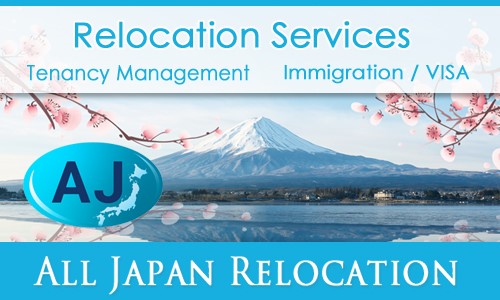Professional Training Colleges (Vocational Schools) in Japan

In Japan, there are various professional training colleges (vocational schools), with a number exceeding 2,700. Schools that offer specialized courses as higher education institutions are referred to as "senmon gakkō" (professional training college in English). The major characteristic of these schools is the opportunity to focus on acquiring knowledge specifically relevant to the desired profession and obtaining the necessary qualifications. Foreigners can also enroll in professional training colleges by passing required examinations that demonstrate their suitability. This article provides a detailed explanation of vocational schools in Japan.
What is a Professional Training College (Vocational School)?
Professional training colleges are higher education institutions in Japan that provide practical vocational education. They aim to acquire knowledge, skills, and abilities necessary for professions and practical life, and to enhance one's education. Professional training colleges are divided into eight main fields: 1) Industry, 2) Agriculture, 3) Medical, 4) Hygiene, 5) Education and Social Welfare, 6) Business and Commerce, 7) Fashion and Home Economics, and 8) Cultural and Liberal Arts.
Professional training colleges are positioned as "higher education institutions" similar to universities and junior colleges, and they play a role in vocational education at the higher education stage in Japan. Currently, upon completion of a program of at least 2 years of study (with a total of 1,700 or more class hours), the title of "Diploma" is conferred, and upon completion of a program of 4 years or more of study (with a total of 3,400 or more class hours), the title of "Advanced Diploma" is conferred. "Diploma" holders can transfer to universities, and "Advanced Diploma" holders can enroll in graduate schools.
The greatest advantage of Professional training colleges in Japan is their direct connection to employment. These educational institutions aim to provide high-level specialized skills in various occupational fields and now play a significant role as important higher education institutions, second only to universities.
You can pursue learning necessary for various professions, such as interior designer, architect, system engineer, automotive mechanic, nurse, nutritionist, chef, pastry chef, beautician, certified public accountant, interpreter/translator, flight attendant, hotel staff, childcare worker, home helper, fashion designer, animator, film director, director, game creator, jewelry designer, and more.
> Recruitment Agencies in Japan
> Hello Work in Japan: A Handy Employment Service Center
How many years do a student attend a professional training college?

Professional training college are primarily 2-year programs. However, there are also 1-year, 3-year, and 4-year programs available, each with different study durations and curricula. Even within the same field of study, vocational training colleges can have various characteristics and features.
In fields such as industry, nutrition, beauty/hairdressing, childcare/elderly care, hotel/bridal/business/airline/international/language studies, fashion, entertainment/arts, and others, many departments are established based on a 2-year system.
If a student graduates from high school at the age of 18 and enrolls in a 2-year program at a vocational school, they would graduate at the age of 20. This allows them to become independent as working professionals at an early stage and actively contribute to society.
In fields particularly related to healthcare, it is common to adopt a 3-year system for certain disciplines. This is because there are predetermined curricula required to take national examinations. For example, the majority of departments that train nurses, veterinary nurses, occupational therapists, physical therapists, clinical laboratory technicians, clinical engineers, speech therapists, dental hygienists, acupuncturists, and orthopedic practitioners are 3-year programs.
There is also an increasing trend in 4-year programs, especially in disciplines that aim for certifications requiring higher-level knowledge, such as first-class automobile mechanics, registered dietitians, architects, and legal professionals who need to pass the bar exam. Information technology-related programs that focus on learning IT skills are also seeing an increase in four-year programs.
How can a Foreign Student Enroll in Professional Training College?

image source: JASSO
Higher education in Japan begins after completing a total of 12 years of schooling, including 6 years of elementary school, 3 years of junior high school, and 3 years of high school. This means, in order for foreign students to enroll in higher education institutions in Japan, they are required to have completed the 12th year of formal schooling in their home country. If the number of years of study in their home country is less than 12 years, they may need to study for 1 to 2 years in preparatory education programs or similar courses before progressing to universities or other higher education institutions.
The classes at professional training colleges are conducted in Japanese, so Japanese language proficiency is required. You must meet one of the following criteria:
1. Completion of at least 6 months of Japanese language education at a Japanese language institution designated by the Minister of Justice.
2. Passing the Japanese Language Proficiency Test (JLPT) at N1 or N2 level, administered by the Japan International Education Support Association or the Japan Foundation.
3. Completion of at least 1 year of education at a Japanese elementary, junior high, or high school.
4. Achieving a score of 200 or higher in the Japanese Language subject (Reading and Listening-Reading Comprehension) of the Examination for Japanese University Admission for International Students (EJU).
5. Obtaining a score of 400 or higher in the BJT Business Japanese Proficiency Test conducted by the Japan Kanji Aptitude Testing Foundation.
About a year before enrollment, research and select the desired school. Then take the necessary exams (JLPT, EJU, TOEFL, IELTS, SAT, IB, and so on), submit the required documents and pay the examination fees to the chosen school about 6 to 9 months before enrolling. After passing the document screening, interviews, and entrance exams, pay the tuition fees and apply for a visa. Please check JASSO website for more details.
Those with the status of residence of "student" are also permitted to work part-time up to 28 hours per week by applying for a "Permit to Engage in Activity other than that Permitted under the Status of Residence" at a local immigration office. There are also scholarship programs available for foreign students.
How to Find a Professional Training College
The Association for Technical and Career Education provides a list of vocational schools accepting international students. You can search by prefectures, fields and subjects in English.
https://study-japan-ptc.jp/search/index_en.html
Genki Schools provides school lists in English assorted by fields, you can also find a required Japanese level.
https://www.genkijacs.com/studying-at-a-japanese-college.php
JASSO provides practical information about professional training college in Japan.
https://www.studyinjapan.go.jp/en/other/sgtj/










